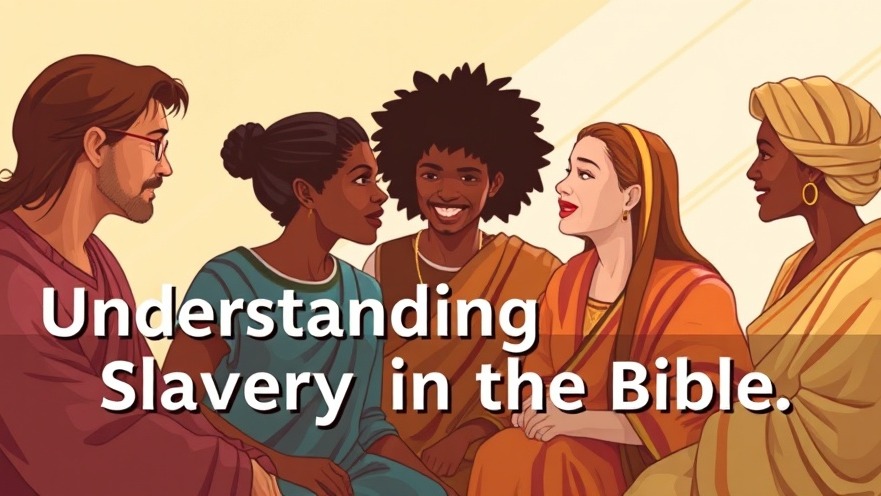
The Transformational Power of Servitude in the Gospel
In the passage of 1 Timothy 6:1-2, the apostle Paul addresses the relationship between slaves and their masters, contending for a view that goes beyond social injustice and taps into the heart of the Gospel—transformational grace. In understanding this difficult topic, we are reminded how the Gospel does not merely call for external change but works internally within individuals, encouraging them to serve their earthly masters with respect as they would serve Christ Himself. The calling of a slave isn’t to revolt against their earthly circumstances, but rather to embody Christ like qualities in their servitude, a concept that finds resonance in Philemon’s plea for Onesimus.
Understanding Slavery in the Roman Context
It’s crucial to understand the historical backdrop against which Paul was writing. In the Roman Empire, slavery was an accepted institution involving roughly one-third of the population. Unlike the chattel slavery that marred the landscape of American history, Roman slavery often allowed for individuals, including well-educated Greeks and Jews, to coexist in households where they might serve as doctors or teachers. Paul's letters often addressed these individuals not merely as property but as integral members of the Christian community. Thus, the emphasis was placed on a new identity in Christ above societal norms.
Gospel-Centered Relationships Over Social Reform
Paul's letters, including his appeal to Philemon, exemplify a posture that neither condones nor outright condemns societal structures like slavery, but instead focuses on the relationships formed within them. Alistair Begg's remarks affirm this understanding, noting that the thrust of Paul's message is about the heart transformation wrought by the Gospel. It creates a bond between masters and slaves, eventually leading to a greater sense of brotherhood that transcends their conditions. Instead of directly addressing slavery as an institution, Paul draws on the principles of love, forgiveness, and brotherhood, which effect change from within.
Lessons for Contemporary Believers
The timeless lessons from Paul’s exhortations are clear: believers are called to live out their faith in every circumstance, serving others as an act of worship. While many modern readers may struggle reconciling the idea of slavery with Christian teachings, it’s essential to recognize the significant cultural differences and historical implications of Paul's writings. The transformative love of Christ serves to elevate the spirit behind servitude and one’s obligations in their societal roles.
Forgiveness and Reconciliation: A Call to Action
The most poignant example we encounter with Onesimus is the theme of forgiveness. Paul seeks to repair the fractured relationship between Onesimus and Philemon, urging Philemon to accept Onesimus not just as a slave, but as a brother in Christ. This asks for deep humility and reflects the heart of the Gospel, where grace prevails over past grievances. As Paul states: 'Receive him as you would receive me.' The challenge lies not just in undertaking action but in embodying a heart posture reflective of Christ’s unconditional love.
A Path Forward in Grace
As we contemplate the significance of servitude and relationships in our current day, we are reminded that the end goal of the Gospel remains unchanged. The heart transformation resulting from recognizing Christ as Lord places believers in a position to transcend societal norms and foster authentic community. We are invited not to engage in societal reform as our primary goal but to advance the kingdom of God through reconciled relationships and Gospel-centered living.
Encouraged by these insights, let us ask ourselves: how can we reflect the transformative power of Christ in our lives today? Each one of us is called to remember that true salvation redefines not just our status but strengthens our relationships, prompting us to love, serve, and forgive others. Embrace the challenge to live out the Gospel in your everyday interactions, fostering an environment ripe for growth and reconciliation.
 Add Row
Add Row  Add
Add 








Write A Comment